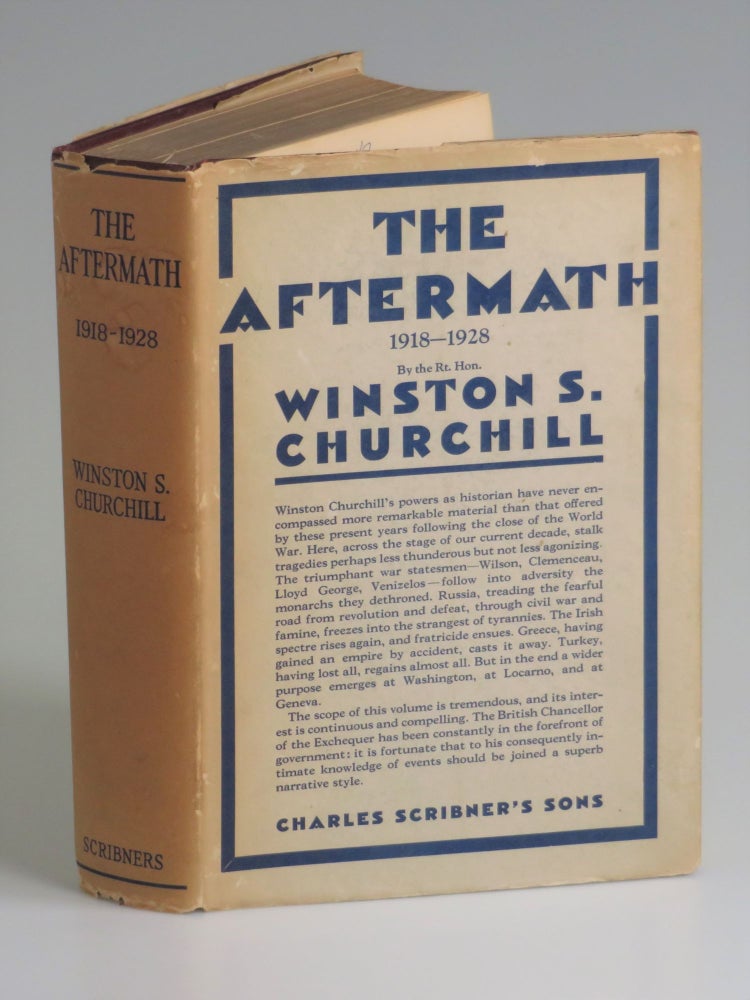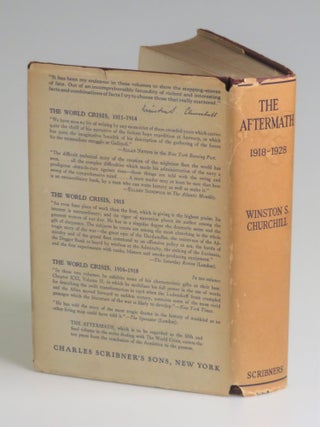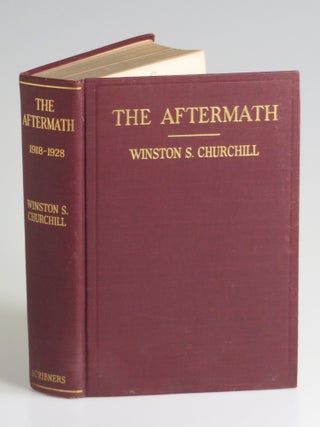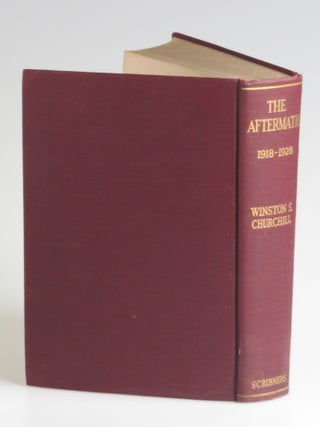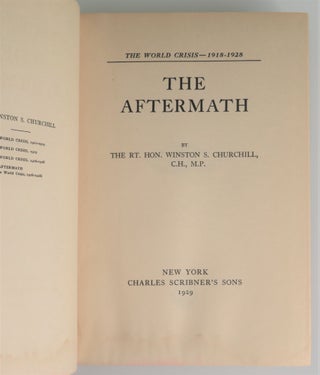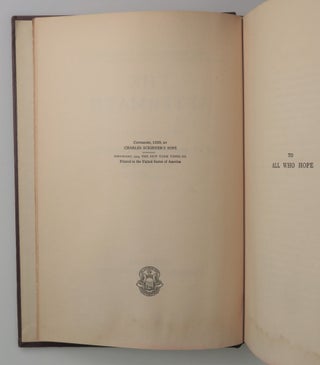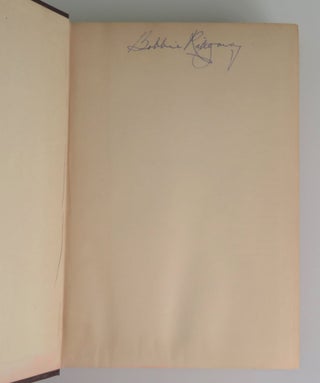The World Crisis: The Aftermath, 1918-1928
New York: Charles Scribner's Sons, 1929. First Edition, First Printing. Hardcover. This is a jacketed U.S. first edition, first printing, of the fifth and penultimate volume of Winston Churchill's monumental history of The First World War. A quarter of a century before the Second World War endowed him with lasting fame, Winston Churchill played a uniquely critical, controversial, and varied role in the “War to end all wars”. Then, being Churchill, he wrote about it. The World Crisis was originally published in six volumes between 1923 and 1931, with the first four volumes spanning the war years 1911-1918 and the final two volumes covering the postwar years 1918-1928 (The Aftermath) and the Eastern theatre (The Eastern Front). Unusual among Churchill’s many published books, the U.S. first edition of The World Crisis initially preceded the British, making the U.S. the true first edition.
The Aftermath addresses some of the complications and disappointments of peace following the Armistice that ultimately set the stage for the Second World War. In 1929, the year The Aftermath was published, Churchill faced his own complications and disappointments. In the 1929 General Election, the Conservatives lost 10 Downing Street and Churchill his Cabinet post as Chancellor of the Exchequer. The ensuing 1930s would come to be called Churchill’s "Wilderness Years" – a decade he spent out of power and out of favor, warning about the dangers of a rising Nazi Germany, often at odds with both his party leadership and prevailing public sentiment.
This U.S. first edition, first printing is very good in a very good dust jacket. This copy would be near fine if not for a few unobtrusive aesthetic flaws. The maroon cloth binding is beautifully bright, as well as tight, square, and clean, with only a few exterior blemishes. The contents retain a crisp, unread feel, modestly age-toned but notably with no spotting. The sole previous ownership mark is a name inked on the upper front free endpaper. The defect which prevents our grading this copy better than “very good” is a tide mark, to a maximum height of .75 inch (1.9 cm) affecting the bottom edges of the first few leaves of the prelims, through page 3. Close examination of the binding reveals a faint corresponding indication of moisture exposure to the bottom edges of the covers. The dust jacket is unclipped, retaining the original “$5.00” upper front flap price. Shallow chip losses are confined to the spine ends and corners, the spine lightly toned and scuffed, the faces clean and bright. There is a closed tear at the upper rear hinge. The jacket is protected beneath a clear, removable, archival cover.
In October 1911, aged 36, Winston Churchill was appointed First Lord of the Admiralty. He entered the post with the brief to change war strategy and ensure the readiness of the world’s most powerful navy. He did both. Even Secretary of State for War Lord Kitchener, with whom Churchill had been variously at odds for nearly two decades, told Churchill on his final day as First Lord “Well, there is one thing at any rate they cannot take from you. The Fleet was ready." (The World Crisis: 1915, p.391) Nonetheless, when Churchill advocated successfully for a naval campaign in the Dardanelles that ultimately proved disastrous, a convergence of factors sealed his political fate. Churchill was scapegoated and forced to resign, leaving the Admiralty in May 1915.
By November, Churchill resigned even his nominal Cabinet posts to spend the rest of his political exile as a lieutenant colonel leading a battalion in the trenches at the Front. Before war's end, Churchill was exonerated by the Dardanelles Commission and rejoined the Government, foreshadowing the political isolation and restoration he would experience two decades later leading up to the Second World War. Despite Churchill's political recovery, the stigma of the Dardanelles lingered. Hence Churchill had more than just literary and financial compulsion to write his history.
References: Cohen A69.1(IV).a, Woods/ICS A31(aa), Langworth p.103. Item #006749
Price: $1,000.00

